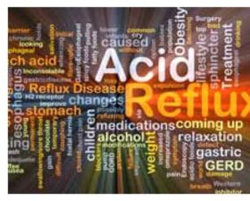
At one point or another, we’ve all experienced it. After a big spicy meal, we feel the pressure, a small burp, and suddenly an acidic taste fills our mouths. Acid reflux, or GERD (gastroesophageal reflux disease), affects over 3 million people a year. In fact, over 60% of the population experiences it occasionally, and 30% deal with it weekly.
So What’s the Big Concern About Acid Reflux?
When the acid from our stomach travels backwards to the mouth, it creates a cascade of irritation and inflammation to the hard and soft tissues it comes in contact with…and when reflux becomes chronic, it begins to inflame your gums and dissolves the enamel of your teeth. We see patients on a weekly basis whose mouths were slowly traumatized by acidic erosion and wear. Even worse for our systemic health, it can cause asthma as it inflames the lungs, and can also predispose us to esophageal cancer.
Our first line of defense lately has been medicinal, through prescription and over-the-counter medications called PPIs (proton pump inhibitors). These meds block the production of acid by cells in the lining of our stomachs. Great! Except for the fact that these stomach acids play a valuable role in helping absorb vital nutrients. When PPIs are used long term, they significantly alter the absorption of dietary minerals like iron, calcium, magnesium, and B12. This has been directly linked to bone fractures and osteoporosis. And let’s not forget about the cost; current figures show that PPIs such as Prilosec and Nexium account for over $14 billion in pharmaceutical sales in the U.S.

A Natural Solution
To combat the issue of acid reflux, consider taking a more natural approach to this dilemma. Start by eliminating reflux-causing foods like gluten, citrus, tomatoes, dairy, and chocolate. Then follow that up by reducing the consumption of processed foods, which contain chemical additives that can further exacerbate reflux conditions. Next, cut back on soda, coffee, and tea; although the caffeine in these beverages may make us feel great, there is a significant connection between these substances and reflux. Obesity is linked to acid reflux, too. The more weight we carry, the more pressure we place on our stomachs, and that causes increased expression of acids. Focusing on losing and managing body weight, and in particular, cutting out the late-night snacking, can make a huge difference in combating this disease.
If you’re struggling with acid reflux, take a look at your diet and consider making some healthy changes as soon as possible. Not only will you feel better, but your teeth and mouth will be very appreciative as well!
